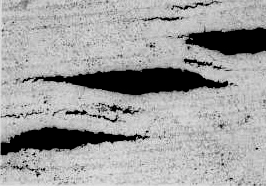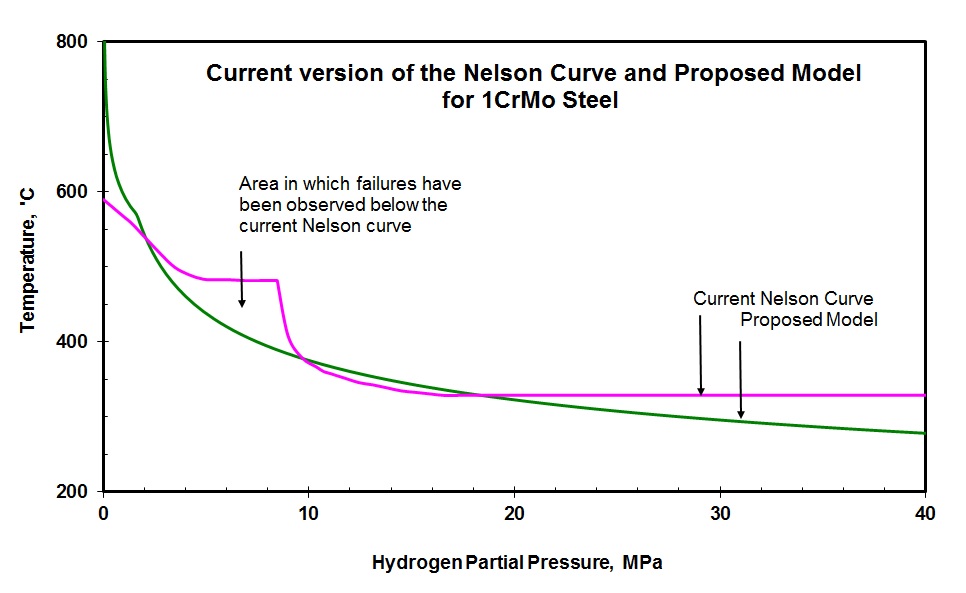
Component:
- Pressure parts, fabricated from low-alloy steels, operating in hydrogen service at elevated temperatures
Situation:
- The susceptibility of such components to hydrogen attack is currently determined by reference to the 'Nelson curves' (API RP541)
- These material-specific curves provide a go / no-go criterion based on temperature and hydrogen partial pressure
- For most materials they do not contain any time-dependence, and are thus subject to periodic revision based on accumulating service experience in the industry
Objective:
- To provide a secure basis for determining the susceptibility to hydrogen attack
Approach:
- Analysis of the current Nelson curves, and the underlying data where available, in terms of accepted models of solubility and diffusion
- Calculation of theoretical curves based on solubility and diffusion models
Benefits:
- A significant step towards understanding the basis of the Nelson curves
- A provisional theoretical form of the Nelson curves with time dependence included
- A reasonable correlation between the model and recent service experience of failures under conditions below the current published limits

Publication:
Brear, J.M. and Church, J.M.
“Technical basis for API Publication RP941 (Nelson Curves)”
Third Int Conf ‘Engineering Structural Integrity Assessment’, Cambridge, September 1996
